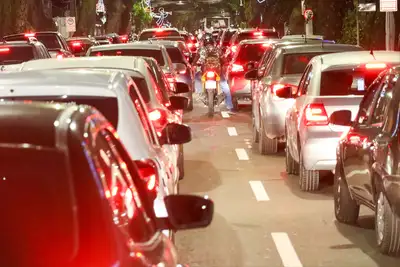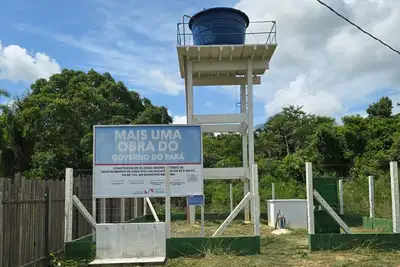Detran warns of violations that can suspend the right to drive for years
The state traffic agency observes that the penalties aim to curb infractions considered very serious and that pose accident risks

Traffic is an environment that demands responsibility, and respecting the rules is essential to ensure everyone's safety. As determined by the Brazilian Traffic Code (CTB), there are specific violations that can lead directly to the suspension of the right to drive. Driving a vehicle under the influence of alcohol or drugs, failing to provide assistance in an accident or abandoning the scene, exceeding the speed limit by more than 50%, participating in street racing, driving without a helmet, and making dangerous overtakes are among the violations provided for in the Traffic Code that can cause the suspension of the driver's license (CNH).
In addition to specific violations, the suspension of the right to drive also occurs due to the accumulation of points on the CNH, as follows: 20 points if there are two or more very serious violations within a 12-month period; 30 points if there is only one very serious violation within a 12-month period; and 40 points if there are no very serious violations within a 12-month period.
The penalty coordinator of the State Department of Traffic (Detran), André Panato, explains that the driver is officially notified by the agency and can present a defense within 30 days. If the defense is denied, the penalty will be applied, and a new notification will be issued, with a new 30-day period to appeal to JARI.
The suspension penalty for specific violations can range from 2 to 18 months, depending on the violation and the recurrence of its commission within 12 months. In cases of accumulated points, the suspension period varies from 6 to 24 months. For the driver to regain the suspended right to drive, they must fully comply with the suspension period and undergo a recycling course. "The penalties aim to curb very serious infractions that pose risks, as well as to ensure that public interests in road safety are respected," he emphasizes.
The fight against reckless behavior in traffic and the alert for risk factors have been constant efforts by the Detran's inspection and education teams. Not by chance, the violations that most lead to the suspension of the CNH, especially alcohol-related offenses, riding without a helmet, and speeding, are among the main targets of the operations carried out by the agency throughout the year.
"Detran aims to protect lives, not punish. However, like any traffic agency, it acts according to the law when sanctioning persistent offenders. The collaboration of the population is crucial, as traffic education is fundamental for safety on the roads and to avoid penalties," emphasizes Panato.
Text by Maria Helena Genniges









